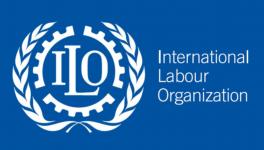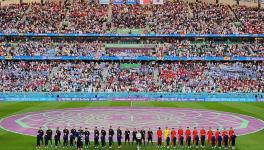Game Zero: The Champions League Football Fixture At the Centre of Italy’s Covid-19 Pandemic

Atalanta beat Valencia 4-1 at the game in the San Siro, and a week later it was reported that 35 percent of Valencia’s team had tested positive for Covid-19.
A month after the spread of the Coronavirus pandemic in Italy, the Champions League clash between Atalanta and Valencia at the San Siro in Milan is being traced back as the epicentre of the virus in the country. The game is widely being touted as an example of the negligence shown by the Italian government, as well as a model for what not to do to contain the virus.
The Round of 16 game was played on February 19, as the news about the threat of the virus had already swept across the world. Even as various leagues were contemplating closing off stadiums, Atalanta’s game saw 40,000 fans in the stadium raking in, and creating the atmosphere, the underdog team is famous for. About 2500 Valencia fans had also travelled to the game. A week later it was revealed that 35 percent of Valencia’s team tested for the coronavirus. With respiratory specialists calling this a “biological bomb”, the match is being marked as “Game Zero” -- the point at which the community spread took place. The first case of Covid-19 in Italy came to light two days after the match.
Read More | Social Distancing and Quarantine: The Injury Chronicle of Two Indian Hockey Stars
"We were mid-February so we didn't have the circumstances of what was happening," Bergamo Mayor Giorgio Gori said this week during a live Facebook chat with the Foreign Press Association in Rome. "If it's true what they're saying that the virus was already circulating in Europe in January, then it's very probable that 40,000 Bergamaschi in the stands of San Siro, all together, exchanged the virus between them. As is possible that so many Bergamaschi that night got together in houses, bars to watch the match and did the same. "Unfortunately, we couldn't have known. No one knew the virus was already here," the mayor added. "It was inevitable."
What followed in less than one week after the game was the first reported positive Covid-19 case in the province of Bergamo. At about the same time in Valencia, a journalist who traveled to the match was labelled the second person infected in the region, and it wasn’t long before people who came in contact with him reported positive, as did Valencia fans who were present for the game.
While Atalanta announced its first positive case in the form of goalkeeper Marco Sportiello, Valencia said more than a third of the team was infected, "despite the strict measures adopted by the club."
As of Tuesday, there were nearly 7,000 people in Bergamo who tested positive for the coronavirus. More than 1,000 people have died as a result of the virus, which makes Bergamo the most affected province in Italy.
What is even more galling is the fact that a few weeks after that game, even as leagues shut down their stadiums for fans -- or in the case of Italy suspended it indefinitely -- the Champions League was in full swing. On March 12, almost a whole month after that fateful Atalanta game, Atletico Madrid travelled to Liverpool for their second leg round of 16 tie against the defending champions. Over 3000 Atletico fans travelled to UK at the time, this despite their own stadium locked down and staging games in empty arenas.
But the UK, whose Prime Minister Boris Johnson is also a patient now, is far from the only country that seems to not learn from the mistakes of its neighbours.
As all of Europe has slowly adopted physical isolation, sport has followed suit, cancelling, postponing or indefinitely calling off events over the past few weeks. One football league though goes on -- the Belarusian Vysshaya Liga.
On March 26, Energetik BGU beat BATE Borisov 3-1 to start the 2020 campaign, and many fans did flock the stadium, despite a global warning, and the appeal to practice physical distancing.
The president of the Belarus FA Vladimir Bazanov, adamant to start the league said last week, “For what reason should we not start it? Is a state of emergency declared in our country? “There is no critical situation. So we decided that we are starting the championship in a timely manner. Today,” he added.
In some ways his statement is understandable seeing as Belarus has reported as few as 81 confirmed cases -- a considerably lower figure than other European countries. Their first positive test came on February 28, which was 9 days after the Champions League match in Italy. There have, as it stands, no deaths have been reported in the nation due to COVID-19.
Amazingly enough, one would assume this to be a golden opportunity for the country to get ahead of the pandemic and keep it at bay by restricting the spread. Not so in Belarus though. Run by a president whose actions have invited multiple international sanctions for human rights abuse, Belarus national policy towards the pandemic has been more watch and walk on. President Alexander Lukashenko has been clear that there will be no sudden moves to contain the issue at hand.
“The civilized world is going nuts. It is absolute stupidity to close state borders,” Lukashenko said last week. “No one is talking about the virus. In the villages, the tractor will heal everyone. The fields heal everyone.” To combat Covid-19, he has also recommended 40–50 grams of vodka daily, frequenting saunas and farm work.
These come across as two different tales in a time when more than 3 billion people are in a lockdown situation across the globe. Italy and Spain may have learnt about the necessity to close down public spaces late -- Italy closed down the country four days after the Champions League fixture, but not too far away lessons are being discarded as life goes on. In addition to Belarus, professional football leagues are still active in Nicaragua, Turkmenistan, Burundi and Myanmar.
Get the latest reports & analysis with people's perspective on Protests, movements & deep analytical videos, discussions of the current affairs in your Telegram app. Subscribe to NewsClick's Telegram channel & get Real-Time updates on stories, as they get published on our website.
























